
It Took Fujifilm Almost a Year to Develop the X100VI’s Stabilization Unit
Fujifilm has been at the forefront of sensor stabilization systems and the one found in the new X100VI is particularly impressive given the size constraints.

Fujifilm has been at the forefront of sensor stabilization systems and the one found in the new X100VI is particularly impressive given the size constraints.

Canon has designed a system that makes it easier and more reliable to capture high-dynamic-range (HDR) photos by better pairing an in-body image stabilization (IBIS) with shake detection algorithms that actively correct for changes in a scene at the point of capture.
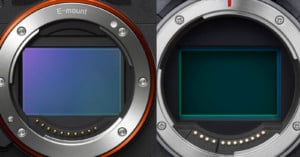
The Digital Picture has published an in-depth in-body image stabilization (IBIS) test that compared the performance of the Canon EOS R5 and the Sony Alpha 1. In many cases, Canon's EOS R5 showed a 1/3 to 2/3 stop advantage over Sony's flagship.

In May, PetaPixel reported an in-body image stabilization (IBIS) bug in the Sony Alpha 1 camera. It, combined with issues with the electronic viewfinder (EVF) had left a large number of users upset. Today, Sony released new firmware that fixes both issues to the delight of the community.

Canon has applied for a patent that would use an in-camera algorithm in tandem with the camera's image stabilization system to intelligently determine the difference between blur caused by motion and blur caused by a moving subject, and correct it.
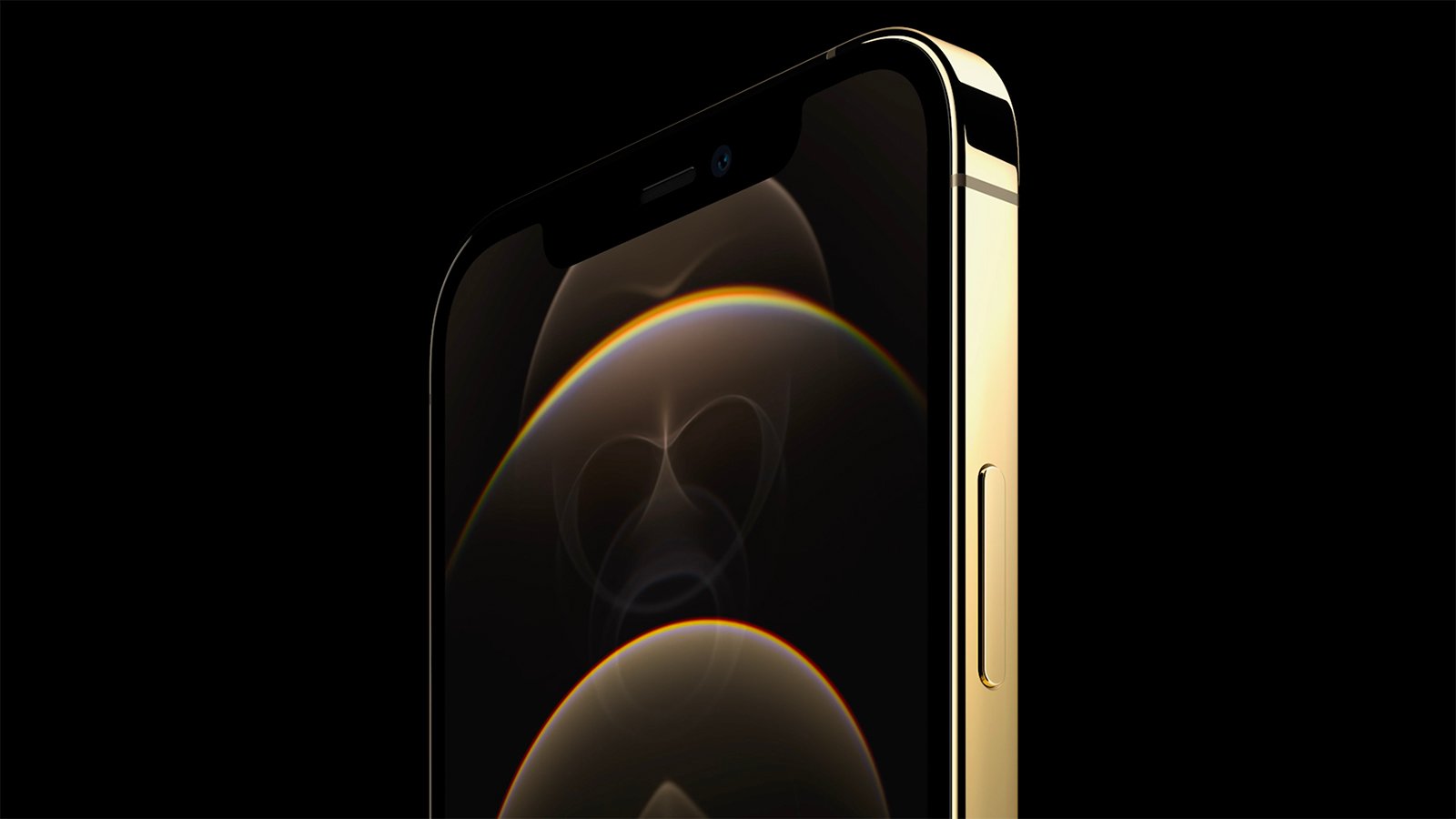
Following a rumor that the iPhone 13 would possibly feature sensor stabilization in some capacity on all of its models, a new report alleges that looks more and more likely as it appears Apple will be purchasing the necessary parts for the feature in large quantities in the next two months.

The Sony Alpha 1 is Sony's latest and greatest full-frame professional camera, but some users are reporting a situation that can cause them to miss important moments: in some cases, the camera's in-body image stabilization (IBIS) will not turn on -- a delay that can last for several seconds.

Canon has applied for a patent that would allow a camera to use its in-body-image-stabilization (IBIS) to approximate the effects of an anti-aliasing filter. The idea is similar to how sensor-shift multi-shot works, but in reverse.

A Canon EOS R5 user has reported a replicable glitch that appears to be caused by using the camera's in-body image stabilization which results in blurry photographs.
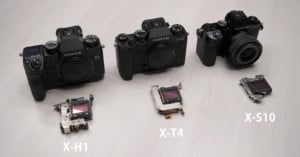
In-body image stabilization, or IBIS, has become a staple of high-end mirrorless cameras, and companies are iterating at a rapid pace. We learned a little bit about this evolution in a recent BTS video filmed at Olympus R&D headquarters, and now, Fuji is giving us a peek at how its IBIS units have evolved since the X-H1.

Dave Pardue over at Imaging Resource has just finished filming a crop-sensor IBIS shootout that you definitely want to check out. Using a specially-built four-camera "rig", he shot the Panasonic GH5, Fuji X-T4, Olympus E-M1 III, and Sony a6600 side-by-side (by-side-by-side) so you can see exactly how the stabilization in each camera compares.
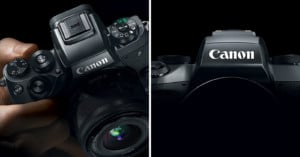
With all of the focus on the RF-mount and the debut of the EOS R5 and EOS R6, it's easy to assume that Canon has given up on the EOS M lineup. But according to the most recent reports, that's not true. Canon's in it "for the long haul," with new features and at least one new camera planned for late 2020.
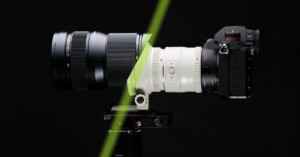
How does Lens IS compare to using IBIS? And how do either of these compare to stabilization in post? These are the questions that Eric Stemen wanted to answer in his latest side-by-side comparison, which highlights the benefits and limitations of each stabilization method when shooting video handheld.
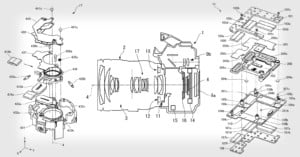
A fresh patent uncovered by Canon News reveals that Canon has been working hard to perfect an implementation of IBIS + Lens Stabilization, something we'll hopefully see in a future version of the EOS R.

A fresh report citing "industry observers" claims that Apple has a big change in store for next year's iPhones. Certain 5G models of the 2020 iPhone, claims the report, will come with sensor-shift stabilization instead of the lens-based OIS that's currently being used.
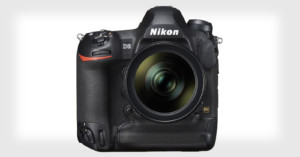
Canon isn't the only camera maker who wants to make a splash in February. It seems the flagship Nikon D6, which Nikon announced as "in development" a couple of months ago, will arrive in mid-February, and rumored specs look very promising.
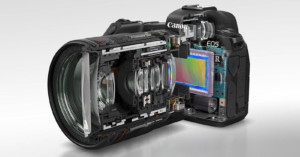
Canon has more-or-less confirmed what many had hoped, and rumor sites had already been reporting: in-body image stabilization (IBIS) and dual card slots will both be included in the "high-end" EOS R model that the brand is "considering" (read: has in development).
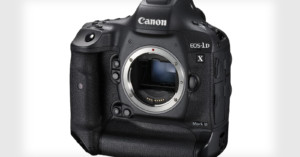
We all expect Canon to announce its EOS 1D X Mark III before the Tokyo olympics, but the rumor miss has been surprisingly quiet on what exactly Canon is planning to do with their next flagship DSLR... until now.
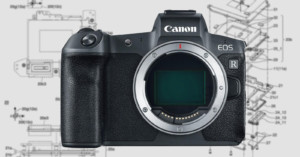
A recently unearthed patent purports to show, in detail, exactly how Canon plans to improve on sensor-based in-body image stabilization for its upcoming full-frame mirrorless cameras and DSLRs.

According to the most recent reports out of Japan, Nikon is planning to announce the flagship Nikon D6 DSLR in less than a week! The official announcement of the D6—which is rumored to feature in-body image stabilization, better video, and more—is now expected on September 4th.

After weeks of rumors and speculation and leaked specs, Sony has finally unveiled the two APS-C mirrorless cameras we've been expecting: the flagship Sony a6600 with IBIS and a bigger battery, and the entry-level Sony a6100 for photographers and vloggers on a budget.
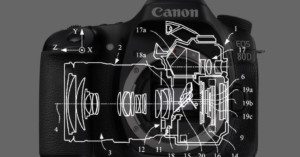
We've known for several months now that Canon was working on IBIS for its full-frame mirrorless EOS-R system, but a recent patent and a new rumor indicates that this tech might make its way into Canon's DSLRs as well... and soon.
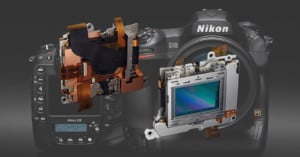
A new set of rumored specifications published by Nikon Rumors seems to confirm a previous rumor that the upcoming Nikon D6 DSLR will bring a much-requested feature to the Canon 1DX II competitor: in-body image stabilization.

Canon's $2,299 30MP EOS R was its first full-frame mirrorless camera, but it has long been reported that it's a middle-tier camera and that entry-level and pro-grade models are on the way. Rumors are now heating up that Canon has a 100-megapixel EOS R camera in the works -- one that packs in-body image stabilization.
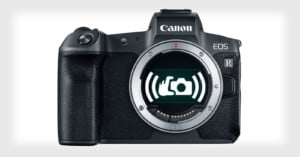
Canon officially joined the full-frame mirrorless camera wars back in September with its new EOS R, but one of the glaring omissions from the features list was in-body image stabilization (IBIS). But that may soon change: Canon will reportedly be including IBIS in the next EOS R camera.

Fujifilm is reportedly working on bringing in-body image stabilization to its X Series cameras, something the company had previously said wouldn't be possible and or/practical with its XF-mount lenses.